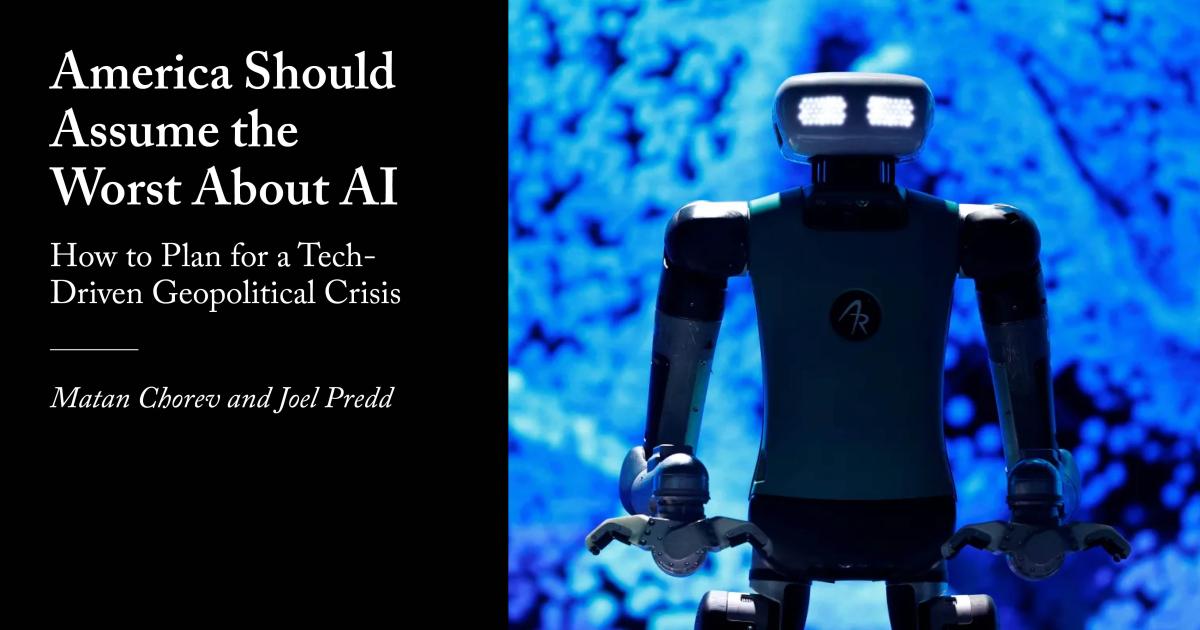
RAND
@RANDCorporation
We arm leaders with the information they need to tackle the toughest policy problems. Nonprofit, nonpartisan. Core values = quality & objectivity.
There are competing claims about how reducing U.S. military involvement abroad would affect the behavior of U.S. rivals and allies. To better understand the trade-offs, we examined four historical cases of limited retrenchment. 🧵

Israel's war against Iran was "fought with limited means for an even more limited period—all of which, in turn, means that the campaign's objectives were also limited. The campaign, therefore, needs to be judged against the alternative strategies." bit.ly/416EEGz

In light of China's increased military threats and intimidation activities, how could Taiwan improve its civilian-resilience capabilities? Our new report explores: bit.ly/4m42efm

5️⃣ questions with Peter Hussey, director of RAND Health Care: bit.ly/3UcOJxM

"Planning for AGI is not an indulgence in science fiction or a distraction… It is a responsible way to prepare for the very real possibility of a new set of national security challenges in a radically transformed world." foreignaffairs.com/united-states/…

New report explores Taiwan's civilian resilience against acts of war: bit.ly/40Mjxtd

Libraries can be hubs for mental health support, especially in rural communities. This new toolkit can help libraries build community capacity for mental health and well-being: bit.ly/3GLaVfs
"Israel's limited war on Iran needs to be judged against the alternative strategies. And by that measure, the operation was a success." New commentary by RAND's Raphael Cohen: bit.ly/46j3cj9

"During the Abe administration, the U.S. got used to a new Japan that could get stuff done," says RAND's Jeffrey Hornung. "Does an election defeat drag Japan back into its old norm of paralysis?" nytimes.com/2025/07/21/wor…

China and India are at an inflection point, says RAND's Shanshan Mei. They need each other, but they're also trying to prepare for a potential conflict. Neither wants war, she says, but "miscalculation and misperceptions may eventually be a big problem." youtu.be/t5U5InvvlXI?fe…
"Planning for the impacts of artificial general intelligence on national security needs to start now." New insights from RAND's Matan Chorev and Joel Predd: foreignaffairs.com/united-states/…

Limited wars rarely offer a permanent resolution. "But they can buy time, shift the geopolitical dynamic and, in doing so, pave the way to something more enduring," says RAND's Raphael Cohen. bit.ly/4lz2va0

How can humanity prevent a major disaster in space? On a new episode of Policy Minded, @BHMcClintock and @DougLigor discuss the need for international space traffic management. bit.ly/4lCKEPK

New research offers an overview of China-Africa relations: bit.ly/44ManOk

"A policy that strongly incentivizes vertical automation while moderately discouraging horizontal automation succeeds in maintaining historical growth with manageable inequality in roughly one-third of futures—significantly better than other approaches." geopoliticsagi.substack.com/p/strategic-au…
Americans can expect to live four years less, on average, than people in other wealthy nations. And yet the U.S. spends far more than any other country on health care. Peter Hussey, vice president and director of RAND Health Care, explains why: bit.ly/3IsRyrY

Libraries can help provide mental health information and supports, potentially improving care in traditionally underserved communities. Here's how: bit.ly/4nRmUZF

How could Taiwan improve its capabilities to anticipate for, mitigate, and survive an act of war? And how could the international community assist? New research by RAND's @martakepe and Scott Harold: bit.ly/4eTqEpg

On a new episode of Policy Minded, RAND's @BHMcClintock and @DougLigor discuss what's needed to prevent catastrophe in outer space. 🎧 Listen to the podcast: bit.ly/4eYiOLe
